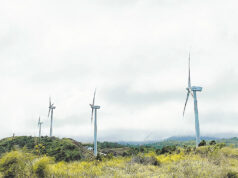THE Department of Trade and Industry (DTI) said it found no “factual or technical” basis to the allegations that local quenched tempered (QT) steel is unsafe for high-rise construction.
“The DTI-Bureau of Philippine Standards (BPS) strongly upholds its stance that the use of QT steel bars in construction is safe, even stressing that the DoST-MIRDC (Department of Science and Technology — Metal Industry Research and Development Center) study in itself confirms this provided that restrictions on welding, hot bending, treading, and galvanizing are strictly followed,” the agency said in a statement released on Monday.
The DTI’s statement came after a series of consultations held with the Philippine Constructors Association (PCA), the Philippine Iron and Steel Institute (PISI), and the Association of Structural Engineers of the Philippines (ASEP), and other stakeholders.
Some stakeholders earlier called for a recall of QT steel as the processes allegedly involved in its production — such as butt-welding, treading, hot bending, galvanizing and heating — can diminish the strength of these steel products, in turn, weakening an infrastructure and threatening public safety.
The PCA was quoted as saying in the statement that the construction procedures for QT bars do not involve butt-wielding, while the PISI noted that galvanizing is not performed on rebars.
Citing a study by the DoST-MIRDC, the DTI said it found that the rebar process through quench tempering and thermo-mechanical treatment passed all the chemical, physical and mechanical requirements.
The DTI said the study also noted that even as the QT steel bar is heated up to a temperature of 500-degrees Celsius, a level which exceeds the 275-degrees Celsius restriction set in the National Structural Code of the Philippines 2015 edition, its microstructure remain unaltered.
Citing the DoST-MIRDC study, the DTI said the 500-degrees Celsius welding temperature may even be a “very conservative cap… to ensure safety.”
The quench tempering and thermo-mechanical treatment processes are also found as being employed in some 190 countries for high-rise construction in the past three decades.
“As a way forward, the DTI-Bureau of Philippine Standards Technical Committee on Long Steel has established an embossed permanent marking for QT steel bars to inform consumers that they are purchasing such kind of steel. The same is likewise proposed for micro-alloyed rebars,” the DTI added, noting these proposals will be included in the proposed revisions for the Philippine National Standard (PNS) 49:2002, Steel bars for concrete reinforcement — Specification (PNS 49:2002)
The bureau began its review for revisions in August 2017 and is set to complete the review this year. — Janina C. Lim



